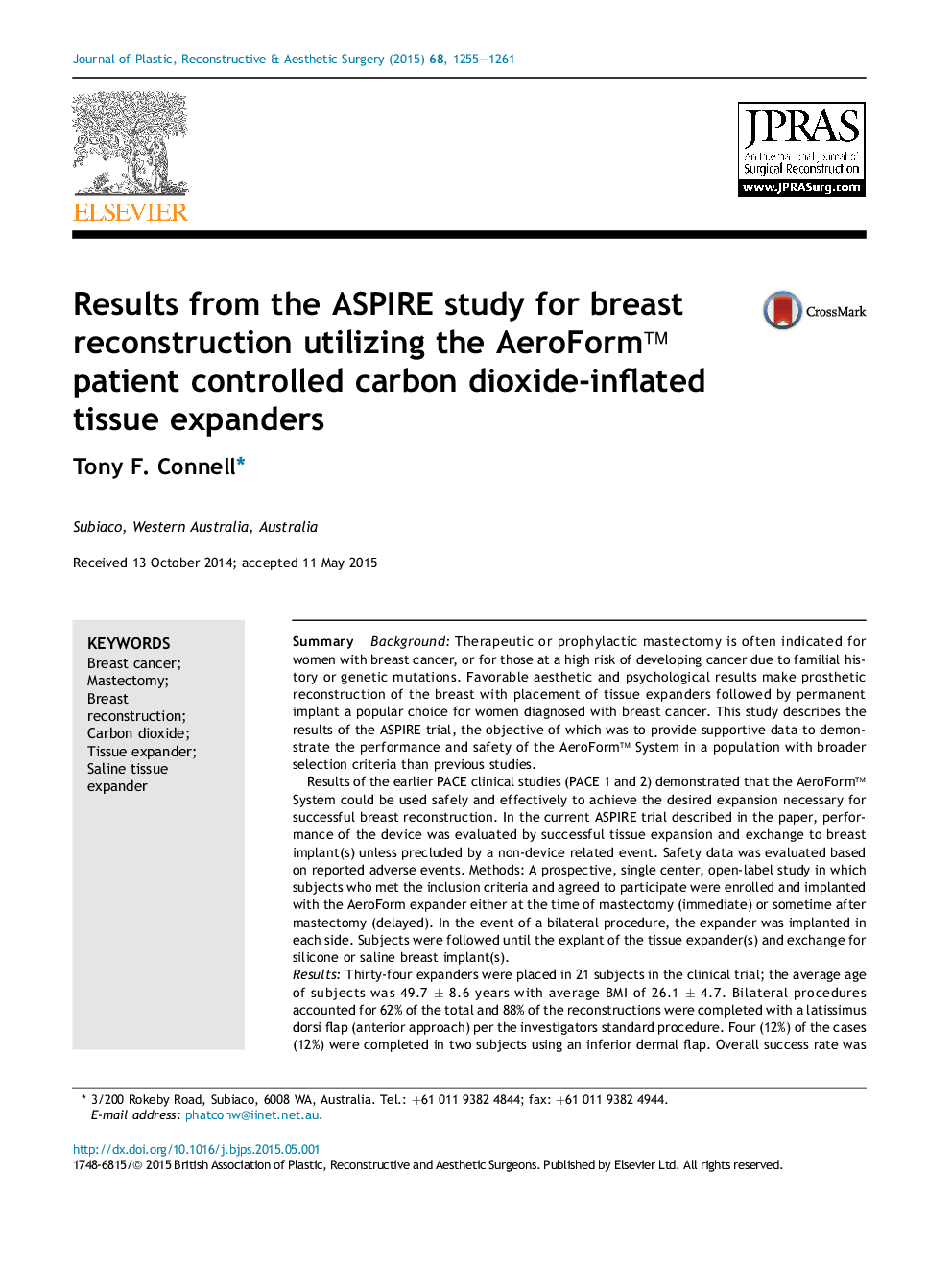| Article ID | Journal | Published Year | Pages | File Type |
|---|---|---|---|---|
| 4117927 | Journal of Plastic, Reconstructive & Aesthetic Surgery | 2015 | 7 Pages |
SummaryBackgroundTherapeutic or prophylactic mastectomy is often indicated for women with breast cancer, or for those at a high risk of developing cancer due to familial history or genetic mutations. Favorable aesthetic and psychological results make prosthetic reconstruction of the breast with placement of tissue expanders followed by permanent implant a popular choice for women diagnosed with breast cancer. This study describes the results of the ASPIRE trial, the objective of which was to provide supportive data to demonstrate the performance and safety of the AeroForm™ System in a population with broader selection criteria than previous studies.Results of the earlier PACE clinical studies (PACE 1 and 2) demonstrated that the AeroForm™ System could be used safely and effectively to achieve the desired expansion necessary for successful breast reconstruction. In the current ASPIRE trial described in the paper, performance of the device was evaluated by successful tissue expansion and exchange to breast implant(s) unless precluded by a non-device related event. Safety data was evaluated based on reported adverse events. Methods: A prospective, single center, open-label study in which subjects who met the inclusion criteria and agreed to participate were enrolled and implanted with the AeroForm expander either at the time of mastectomy (immediate) or sometime after mastectomy (delayed). In the event of a bilateral procedure, the expander was implanted in each side. Subjects were followed until the explant of the tissue expander(s) and exchange for silicone or saline breast implant(s).ResultsThirty-four expanders were placed in 21 subjects in the clinical trial; the average age of subjects was 49.7 ± 8.6 years with average BMI of 26.1 ± 4.7. Bilateral procedures accounted for 62% of the total and 88% of the reconstructions were completed with a latissimus dorsi flap (anterior approach) per the investigators standard procedure. Four (12%) of the cases (12%) were completed in two subjects using an inferior dermal flap. Overall success rate was 94% (32/34 breasts) with no device related reconstruction failures. Two subjects failed reconstruction, one due to infection and one due to wound healing issues, both requiring unilateral expander removal and revision surgery. However, successful second stage reconstruction was completed in both subjects in a delayed procedure.ConclusionThe ASPIRE trial reports confirmatory data in a more inclusive patient population than the previous PACE 1 and 2 trials, indicating that the AeroForm Expander, provides a time-saving, needle-free, safe and effective method of tissue expansion for breast reconstruction. There were no device related complications that precluded the subjects from achieving the study goal of a permanent implant exchange. Reported complications are similar to those reported in the literature for tissue expansion procedures. Further development may enable a single dose controller to operate both expanders in a bilateral patient and increase the size range offered with this promising technology.
